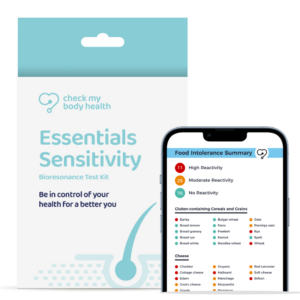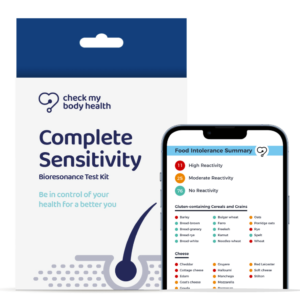Published Sept 12, 2020
Your immune system helps protect you from viruses, bacteria and other invaders. But that’s not its only role. It’s involved in nearly every other bodily system – from your hormones to your nervous system.
A weakened immune system has been linked to an increased risk of viral and bacterial infections, regular colds and hay fever and allergies. There are also links to autoimmune diseases and even some cancers.
Several factors may compromise your immunity:
- Stress
- Certain medications
- Sedentary lifestyle
- Over-exercise
- Smoking
- Lack of sleep
- Poor diet
- Excessive alcohol consumption
- Grief
How to strengthen your immunity
Bolstering your immunity is no mean feat. However, certain diet and lifestyle changes may help strengthen your body’s natural defences, potentially protecting you from harmful bacteria and disease-causing elements.
Embrace the sunshine vitamin
Vitamin D (known as the sunshine vitamin) is a key nutrient for a healthy immune system and may be crucial in activating your body’s natural defences. It enhances the functioning of T-cells and macrophages that help to protect you against pathogens.
Some studies show that vitamin D can reduce the risk of respiratory infections. Many people are deficient in this vitamin, especially those living in colder climates with less sun exposure.
Common food sources include salmon, sardines, tuna, eggs, quinoa and fortified foods. However, throughout winter season at least, supplementation is recommended by the World Health Organization and other leading bodies.
Eat more plant foods
The fibre present in plant-based foods such as nuts, seeds, fruits, vegetables and legumes helps to feed your ‘good’ gut bacteria. A gut filled with healthy bacteria can support your immunity, helping to prevent pathogens from entering your body through the digestive tract. Some good sources include tempeh, kimchi, bananas, leeks, onions, raspberries, black beans, asparagus and pears.
Makes friends with vitamin C
Vitamin C has been shown to strengthen the immune system, improve antimicrobial activities and alleviate symptoms and shorten the duration of respiratory infections.
Importantly, your body doesn’t produce or store vitamin C, so a regular daily intake is important for good health. Citrus fruits such as grapefruits, lemons and oranges are abundant in vitamin C. Other sources include peppers, broccoli, pineapple, spinach and kiwi.
Focus on fats
Healthy fats have been associated with decreased inflammation, therefore boosting the body’s immune response. While low-level inflammation, such as a response to a minor injury, is normal, chronic inflammation may suppress the functioning of your immune system. Healthy fat sources like olive oil, which are also anti-inflammatory, may support your body in fighting off viruses and harmful disease-causing bacteria. Sources of healthy fats include avocado, chia seeds, salmon, nuts, eggs and olive oil.
Zinc up
A zinc deficiency has been associated with a reduced immune response. Research shows that supplementing with zinc can lower the risk of infection and promote an immune response. Some healthy sources of zinc include – lentils, chickpeas, beans, hemp seeds, pumpkin seeds, almonds, pine nuts, cashews, eggs, brown rice, green beans and sweet potatoes.
Prioritise sleep
If you are sleeping less than six hours a night, you are likely compromising the functioning of your immune system. To reduce the risk of picking up infections or viruses, aim to get at least seven hours of sleep each night. Make sure you are sleeping in a room that has as much darkness as possible. And remember to avoid the use of blue light-emitting devices such as ipads or laptops close to bedtime. The light can impact your ability to fall asleep as well as the quality of your sleep.
Get moving
Including regular exercise in your day-to-day may be important to help strengthen your immune system and can prevent its deterioration over time.
Numerous studies explain how exercise can help the immune system locate and deal with pathogens. Regular long-term exercise can slow down the natural changes to the immune system that take place with ageing, therefore lowering the risk of infections.
An immune system that is not functioning optimally not only leaves you open to regular colds and minor infections, but it can also increase to the risk of more serious diseases. It makes deciding to prioritise your health a no brainer.
Fortunately, as explained above, smart nutrition and lifestyle changes can support you. These include eating more fats, fibre and plants, focusing on key nutrients vit C, vit D and zinc, exercising regularly and sleeping better and longer.
Eva Killeen
Published Health & Wellness Writer | Nutritional Therapist Dip ION, BSC
I am a professional copywriter, with vast experience in marketing and communications in the field of nutrition and wellness. I have contributed to a number of leading publications, including Cosmopolitan, Woman’s Health, Veggie Magazine, Simply Vegan, Plantbased Mag, Natural health Magazine and Vegan Food & Living.
I have years of experience as a web content creator and marketing manager, for websites receiving over 100,000 monthly hits. I was solely responsible for SEO for this site and a number of others. I had responsibility for generating a weekly newsletter which had a nutritional focus.
My areas of interest are nutrition, wellness, sustainability and all things eco-friendly. I am an allrounder and enjoy all aspects of business such as building websites, SEO, business development and marketing.strategy.
Qualifications: I am a qualified Nutritional Therapist with a higher degree in Marketing and Management.



